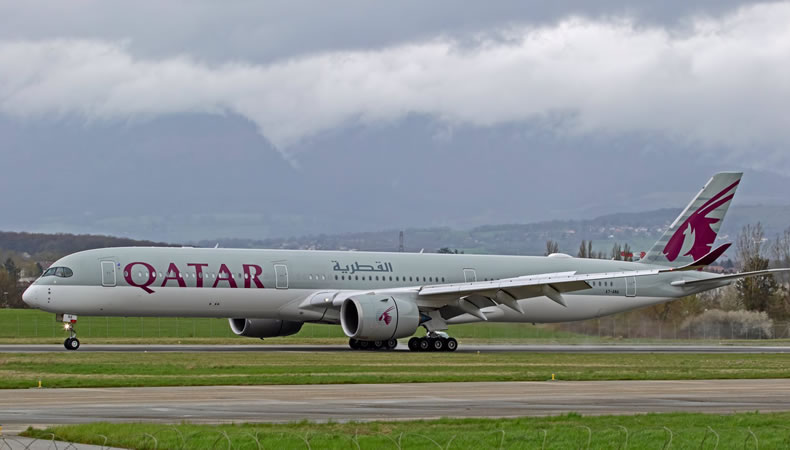Qatar Airways has suffered a defeat in its battle with Airbus


Qatar’s allegation that it was unable to find alternatives, such as leasing planes or deploying 737 MAX airplanes that it had tentatively purchased from Boeing, was dismissed by the judge (BA.N). The decision implies that the world’s largest planemaker may sell the in-demand A321neos to other airlines or remove them from production plans to relieve plant congestion, while the two parties focus on their main disagreement over the A350’s safety. More than 20 A350s have been grounded in Qatar after paint degradation revealed corrosion or holes in a metallic sub-layer meant to absorb lightning, which strikes planes once a year on average.
The Gulf carrier claims that this raises concerns about the safety of the impacted planes, and it has refused to take any future aircraft pending an inquiry, as well as a $1 billion compensation demand. Airbus has pulled the A321neo order in response to Qatar’s decision to cancel A350 deliveries. Airbus recognizes quality issues but believes the planes are safe. It has accused the A350’s biggest client of raising false safety concerns to avoid taking more planes at a time when overall demand is weak.
Related Posts
“Airbus is delighted that this problem is now resolved, allowing us to return our attention to the core matter of Qatar Airways’ misrepresentation of the A350’s safety and airworthiness,” it added. Qatar had no quick response, but a source close to the carrier said the A321neo incident was secondary to its safety worries over A350 damage, which it blames on a design flaw.
Other carriers have been impacted by the problem, according to a Reuters investigation in November, though none have pulled planes out of service except for surface repairs. The overflow to the busier A321neo sector, where Airbus controls the market, has frightened carriers, with the International Air Transport Association calling the cancellation “worrying.”
Airbus received support for its argument that the two contracts are linked by a “cross-default” provision that permits it to terminate one if the other is not honored. Some airline executives are concerned that this could create a precedent that will allow disagreements to bounce from one contract to the next, strengthening Airbus and Boeing’s hold on the industry. “People will take notice of this and take extra precautions to avoid cross-default clauses,” stated the CEO of a significant airline fleet.
The court case has pierced the veil of secrecy that has surrounded more than a decade of aircraft discussions, revealing highly guarded planning techniques inside the global jet industry. According to multiple industry sources, it is in neither side’s interest to launch a full-scale trial, which would result in a deluge of new information and put the relationship between Airbus’ headquarters country France and major energy producer Qatar to the test at a time when Europe desperately needs new gas supplies.
While some insiders believe there is a chance of a settlement, the two sides spent much of Tuesday’s session talking about the practicalities of a trial that could start as soon as early 2023, along with requests for internal papers. As one of the industry’s most important ties unravels in London’s High Court, the dispute’s lawyer-packed sessions reflect a shift from the industry’s normal reliance on closed arbitration. The airline was forced to cover the majority of Airbus’ expenditures in the A321neo case.












